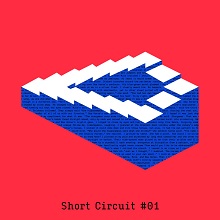Kitsy Boo hated his name.
"Kitsyyyyyyyyyyy," his owner, Marguerite, would call. "Boooooooooooooo!"
Every time the shaky old voice called for him, the other neighborhood animals would laugh.
...
[+]
On our last day at the beach the sun came out, and the fog, which for that whole week had draped the shore in a veil of cotton, burned away: we discovered there was an ocean here, after all. It wasn't blue, really, closer to black, but when the waves flattened out across the beach the water was perfectly clear, and full of what looked like minnows and tiny crabs. The shells were just so-so, mostly shards of something that used to be beautiful, like ancient pottery washed up from the ocean floor: they reminded you the world was old, a lot older than we were and would ever be. I'd like to say that these discoveries inspired in us a recognition of our own mortality, but the truth was it just felt good to have the sun on our shoulders as my wife and I – so young, newly married – walked across the warming sand, hand in hand. She was wearing a black two-piece, simple and very small, and so beautiful that even the women we passed couldn't help but stare at her. Her hair (thick and fiery red) was in pigtails, and somehow this girlish maneuver heightened her brazen but effortless display of pure, glorious womanhood. I was invisible in the best possible way.
"I'm glad our honeymoon wasn't ruined," she said.
I stopped walking, and looked at her. "I didn't know it was even close to being ruined," I said. "We've made love like a hundred times, read three novels and watched an entire season of The Walking Dead. That's almost perfect."
"Yeah," she said. "I didn't mean ruined. But you can't go back and tell people that it was foggy and it rained the whole time and you read and watched TV. It sounds gloomy."
"You skipped the part about making love."
"Because you can't tell people that."
"No," I said, though I probably would, I thought. "Let's tell them it was sunny every day and we swam with the dolphins."
"But that would be wrong," she said, and we laughed. Somehow this had become a joke: But that would be wrong. I have no idea why or how but it was hilarious to us, just to us, the way that something that clearly isn't funny is. "That being said, I'll totally never forget that ride we took on the hump-backed whale."
"Because it's unforgettable. We'll tell our kids about that."
"Little Electra and Archimedes."
"I thought we'd settled on Zeus and Hera?"
"I just think that might put too much pressure on them, honey. And it's incest."
I slapped my forehead, and a few grains of sand fell into my eyes. "Why did I never think about that? I'm so mythologically stupid." Pause. "At least I know you're a goddess."
She squeezed my hand. "Keep ‘em coming," she said.
"Don't worry. We're good for the next ten years at least."
"Whoa. You stockpile blandishments?"
"Blandishments are my specialty."
"Oh no," she said, in a husky erotic whisper. "No, they're not."
How long had we been walking? I had no idea. I stopped and looked behind us: I couldn't see our hotel or any landmark at all. Civilization had disappeared behind the curve of the shore. I could imagine that we were on a deserted island, looking toward the horizon for a rescue we knew would never come. I don't know what she was thinking, but she had faraway in her eyes as well, and as I looked into them (her eyes were the color of ivy) the tail end of a wave chilled my toes: I almost gasped it was so cold.
She turned to me.
"I'm going in," she said.
"No way."
"I could never live with myself if I went to the beach and didn't get in. I would be ashamed for the rest of my life. You're coming in too."
"I don't think so."
"You're my husband now," she said. "You have to. It was in our vows."
"Those vows were ambiguous."
"On purpose, just for occasions such as this."
She let go of my hand and took a deep breath, girding herself. I took a step toward the water myself but with her hand on my stomach she held me back.
"I'm first in," she said. "I'm always first in. Ever since I was little. That's what I want on my tombstone: First In, Last Out. Remember that."
"I will."
"I'm serious," she said, and she studied my face. "You'll remember?"
"I'll remember. But I didn't know that about you."
"Well," she said. "I guess there's a lot you don't know about me."
She winked, smiled, and then she was gone. She ran into the water, whooping in a kind of crazy joy, and kept running, in slow motion now as the water got deeper. She pushed into it until she couldn't walk at all and then dove under, disappearing completely for what seemed like a very long time. Then she appeared about fifteen yards out, the bigger waves rolling against her back, lifting and releasing her, up and down, up and down.
She waved, I waved.
"Come and get me if you dare!" she yelled into the wind, my freckled goddess in the wine-dark sea, the woman who had already told me the words she wanted on her tombstone when death does us part. I wanted to tell her what I wanted on mine, too, but the water was cold, and she was already so far away.

